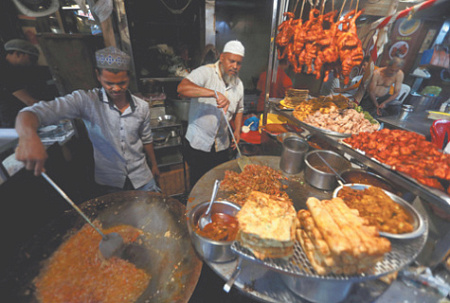
A war of words is escalating between Washington and New Delhi, threatening to unravel a key strategic partnership. U.S. officials close to President Donald Trump have begun using sharply critical language against India and Prime Minister Narendra Modi over the country’s continued purchase of Russian oil amidst the conflict in Ukraine. Peter Navarro, a key Trump advisor, provocatively labeled the conflict “Modi’s war” and accused New Delhi of acting as the “Kremlin’s launchpad,” signaling a significant deterioration in diplomatic tone.
While some figures, including Senator Marco Rubio and Trade Representative Jamison Greer, attempted to find a middle ground by suggesting India was ready to lower tariffs on U.S. goods, President Trump reportedly rejected the deal. He insisted that India must first curb its substantial oil and arms imports from Russia, highlighting a perceived imbalance in trade where India, in his view, buys too little from the United States. This transactional approach has put immense pressure on a relationship Washington has long courted as a counterweight to China.
The rhetoric from Washington has also veered into culturally insensitive territory, causing deep offense in India. According to The Washington Post, Navarro accused India’s Brahmin caste of profiting from trade with Russia and branded the nation a “tariff maharaja.” Although the White House issued statements affirming a “mutually respectful” relationship between Trump and Modi, the State Department placed the onus on New Delhi to “do more to address U.S. concerns,” a move that has only deepened the rift.
These verbal attacks have been backed by punitive economic actions. President Trump raised tariffs on a range of Indian imports to 50%, causing financial losses for Indian companies and fueling a rise in anti-American sentiment. Pankaj Sarang, a former Indian deputy national security advisor, warned that Washington’s behavior would come at a “high price,” a sentiment now echoing across India’s political and public spheres.
In response, Prime Minister Modi, who had previously invested heavily in building a personal rapport with Trump, has visibly pivoted towards America’s geopolitical rivals. At a recent Shanghai Cooperation Organisation (SCO) summit, Modi was seen in warm discussions with Chinese President Xi Jinping and was reported to have embraced Russian President Vladimir Putin. India’s Foreign Ministry followed up by emphasizing that Delhi and Beijing are development partners, not competitors, a clear strategic signal to the West.
Tensions were further inflamed by a diplomatic spat involving Pakistan. After a brief military exchange between India and Pakistan, the White House claimed credit for brokering a ceasefire, a narrative Islamabad supported. New Delhi, however, was forced to publicly deny any U.S. mediation, viewing Trump’s claim as another sign of disrespect and a violation of a long-standing bilateral agreement to resolve issues without third-party involvement.
While the Indian government’s official response remains measured, public anger is palpable. Influential figures like Swami Ramdev, a yoga guru and prominent Modi supporter, have called for a nationwide boycott of American brands like Coca-Cola, Pepsi, KFC, and McDonald’s. Pro-government media outlets such as The Hindustan Times predict that the discord with Washington will inevitably strengthen cooperation between New Delhi and Moscow.
This prediction appears to be materializing. The image of Modi and Putin holding sensitive talks inside the Russian presidential limousine—reportedly to ensure the conversation was secure from eavesdropping—powerfully illustrates the deepening trust between the two nations. As Modi stated, the bond forged in “the most difficult times” serves as a guarantee of global stability. Meanwhile, to counter the impact of U.S. tariffs, New Delhi is taking steps to bolster its domestic economy by cutting taxes on consumer goods and services, bracing for a prolonged period of strategic and economic friction with Washington.
